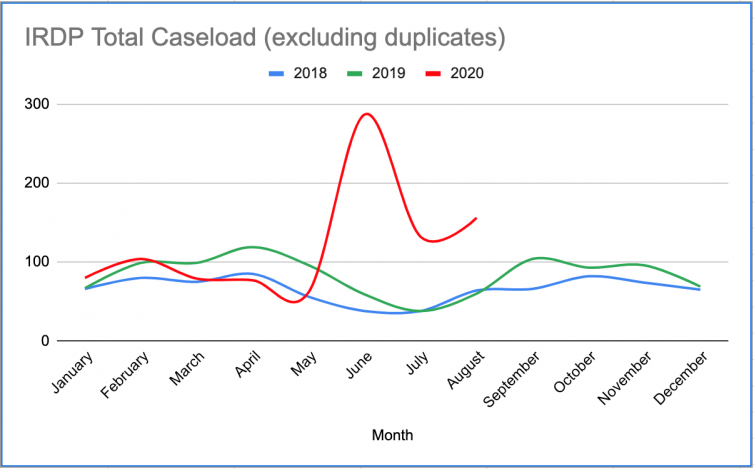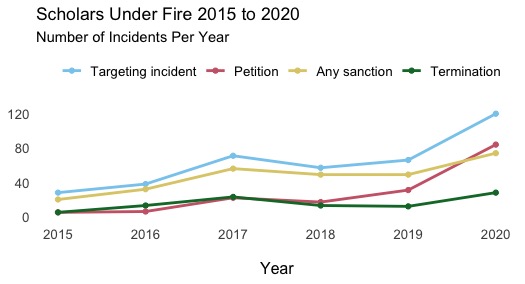
Much virtual ink is spilled over the term “cancel culture.” Conservatives complain about it while perpetuating it, some progressives deny that it exists. @TheFIREorg’s @Komi_Tea & I explain in our recent piece for @thedailybeast. 1/12
thedailybeast.com/dont-stop-usin…
thedailybeast.com/dont-stop-usin…
Last week, @nytimes published an editorial on America’s “#FreeSpeech problem,” citing a poll that showed that over the past year, 55% of respondents self-censored for fear of retaliation or harsh criticism. 2/12
nytimes.com/2022/03/18/opi…
nytimes.com/2022/03/18/opi…
Former @TheFIREorg intern @emmma_camp’s @nytimes op-ed on self-censorship at @UVA provoked some unhinged reactions, demonstrating the censorial behavior Emma warned of. 3/12
nytimes.com/2022/03/07/opi…
nytimes.com/2022/03/07/opi…
Conservative hypocrisy: While the right has been adamant that #CancelCulture is a problem, many conservatives only seem outraged when their own allies are targeted. Others gleefully participate in the cancellation of progressives. 4/12
Progressive denial: Even victims of cancel culture deny that it’s a problem. When some on the left like @LDBurnett & @willwilkinson were canceled, they doubled down on the “cancel culture doesn’t exist” canard. 5/12
medium.com/arc-digital/th…
medium.com/arc-digital/th…
ZERO TWEET: Keep reading for more on @TheFIREorg’s @Komi_Tea’s & my recent op-ed in @thedailybeast on the usefulness of the term “cancel culture,” or click below for my required reading on #FreeSpeech culture. 0/12
https://twitter.com/glukianoff/status/1502394330589315077
We define cancel culture as “the measurable uptick, since roughly 2014, of campaigns to get people fired, disinvited, deplatformed, or otherwise punished for speech that is — or *would be* — protected by the First Amendment.” 6/12
@jon_rauch’s great 6-part definition of cancellation is more precise, but ours is simpler & better matches my historical experience of a major shift around 2014. 7/12
thefire.org/jon-rauchs-the…
thefire.org/jon-rauchs-the…
We tracked 563 attempts to get scholars canceled since 2015 — including 283 just since 2020. Nearly 2/3 were successful, resulting in sanction, & 1-in-5 resulted in termination (that includes 30 tenured professors!). 8/12
thefire.org/research/schol…
thefire.org/research/schol…
Since 2015, 563 attempts to cancel scholars have occurred at U.S. universities. For context, the Hollywood Red Scare targeted ~300 Americans. “Only” 51 people were prosecuted under the Alien & Sedition Acts. Both events still left a shameful stain on #FreeSpeech. 9/12
Nearly 3-in-4 Americans are familiar with the term “cancel culture” & ~60% believe it refers to a growing problem. Abandoning the term cedes ground to the minority who remain unconvinced. 10/12
You don’t need to like the term cancel culture to realize that giving it up would leave most Americans out of the conversation just to please a small group who care more about controlling speech than protecting it. 11/12
I’ve defended campus #FreeSpeech since 2001 & I’ve never seen it as bad as it is today. Those who try to wish the problem away are not rebels: They are defending the dysfunctional status quo at wealthy & powerful megacorporations like @Yale. 12/12
BONUS: Past president of the @ACLU, Nadine Strossen, & I discuss whether there is a First Amendment right to shout down & shut down events. (Spoiler: There isn’t.) 13/12
thefire.org/shouting-down-…
thefire.org/shouting-down-…
• • •
Missing some Tweet in this thread? You can try to
force a refresh






